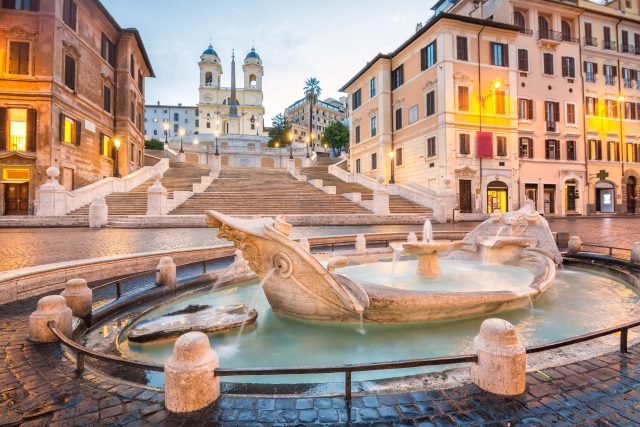
European Diary: Rome, December 2021
It is always a pleasure to visit Rome, the eternal city. I first came to Rome in the autumn of 1986, stayed at a hotel above the Spanish steps and the Trevi Fountain and used my few days in the city to the utmost, looking in awe at all the monuments, churches, palaces and ruins in what was for many centuries practically the capital of the Western world and where the headquarters of the Catholic Church are still located. At the initiative of my friend, Professor Antonio Martino, I returned in the spring of 1994, to be a Visiting Professor at LUISS, Libera Università Internazionale degli Studi Sociali. Martino was then busy campaigning for Forza Italia, the political party founded by Silvio Berlusconi and him to save Italy from a communist takeover, seemingly likely after all the established parties had collapsed as a result of revelations about widespread corruption. In the 1994 elections, Berlusconi and Martino succeeded, and Martino became Foreign Minister in Berlusconi’s government which however did not last long. Later Martino was Defence Minister for five years in subsequent Berlusconi governments. Martino was an eloquent, elegantly-dressed, polite and witty scholar and gentleman, whereas Berlusconi was exuberant, energetic, lively and cheerful, with a strong desire to be liked, a strength in a politician but perhaps a weakness in a statesman.
Arguments for Freedom of Expression
On 10–13 December 2021, I found myself in Rome yet again, at a conference on digital freedom, organised by ECR, European Conservatives and Reformists. I enjoyed the warm hospitality of Antonio Giordano, the ECR Secretary General, and Katia Bellantone, the ECR Chief of Staff. Having lived and worked in Rome for many years, they knew everything worth knowing about where to go and what to see in the city. They took me to lovely local restaurants. At the conference itself, I argued that the new social media, especially Twitter and Facebook, had gone too far in trying to censor content on their platforms. I recalled John Stuart Mill’s three exemplary arguments for freedom of thought and expression: that fallible censors might suppress sound ideas; that some ideas contained both errors and truths and that a free discussion was necessary to eliminate the errors; and that even if an idea was totally wrong, it would be worthwhile to try and refute it vigorously. I added two further arguments: that in a democracy freedom of expression was an indispensable constraint on government; and that it could also serve to vent off frustrations which otherwise might lead to violence.
Recent Unjustified Restrictions
In my talk, I agreed that the social media might adopt some restrictions on what could be expressed on their platforms, for example a ban on child pornography and on any incitement to violence. But the recent ban of President Donald Trump could hardly be justified in such a way. He had often been rude and offensive publicly, but freedom of expression was also the freedom to be rude and offensive. If the social media were strong enough to disconnect the leader of the most powerful nation in the world who had received almost 75 million votes in a recent election, how could they then treat others? Another example was the ban imposed by both Twitter and Facebook for a while on any speculation that the corona virus had escaped from a Wuhan laboratory and not been transmitted from an animal to a person. This now seemed the most plausible explanation of the pandemic which had turned the world upside down for the last two years. This was a matter of vital importance, and yet the social media did not for some time allow their users even to mention it.
Social Media as Common Carriers
I discussed the common response that Twitter and Facebook were private companies; and that therefore they could decide which rules to apply when offering their services. This was only partly plausible, I observed: they were also common carriers like phone companies, private roads, and hotels. A phone company could not refuse to connect individuals because they spoke nonsense; the owner of a private road might charge a toll for its use, but he could not prohibit women from driving on it; a hotel could not refuse to serve people of colour. Moreover, Twitter and Facebook, and for that matter also Amazon, were so dominant in their fields of activity that there they enjoyed a near monopoly. You could go somewhere else if a newspaper refused to print your submission, but where could you go in cyberspace if Twitter and Facebook jointly decided to close your accounts and if Amazon refused to carry your books?
Over the last few years all three companies had shown a left-wing bias, I added. Either the social media had to define clearly some fair, narrow and transparent terms of use or they could risk losing the legal immunity that they enjoyed in the United States by which they were not held responsible for opinions and ideas expressed on the platforms they provided. Censors were fallible, including journalists and social media managers. The choice was between censorship and freedom of expression.



 Subscribe
Subscribe